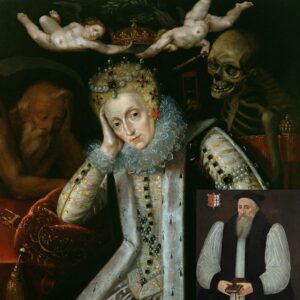
Here’s the story from John Strype’s “Historical collections of the life and acts of the Right Rev. Father in God, John Aylmer: Lord Bishop of London, in the reign of Queen Elizabeth”:
“I will not omit a tradition that goeth in the family of the Aylmers, of the Bishop’s stout heart in a pretty odd instance, namely, in causing one of his teeth to be drawn once in the Queen’s presence, for the better encouraging her to undergo that present pain for her own quiet and ease afterwards : and indeed I find she was once so disquieted with the toothach, that it gave a concern to all the Court.
It was in the month of December 1578, when she was so excessively tormented with that distemper, that she had no intermission day nor night, and it forced her to pass whole nights without taking any rest ; and came to that extremity, that her physicians were called in and consulted. These differed among themselves as to the cause of the distemper, and what means were properest to be used. There was then an outlandish physician of some note, it seems, for giving ease in this anguish, whose name was John Anthony Fenotus ; him the Lords of the Council sent for, and required, or rather commanded him to give his advice in writing, to procure the Queen ease. Whereupon he wrote a long Latin letter which I have seen : first, disabling himself to come after such great physicians ; and then prescribing divers remedies. But in case the tooth were hollow, his advice then was, that when all was done, it was best to have it drawn out, though with the incurring some short pain. But if her Majesty could not submit to such chirurgical instruments, (which it seems he had heard something of the Queen’s abhorrence of,) then he advised that the juice of chelidonius major might be put into the tooth, and so stopped with wax, that none of it might fall upon the sound parts ; whereby the tooth would in a short time be so loose that it might be pulled out by the fingers : or the root of it might be rubbed upon the tooth, and it would have the same effect. But in short, the pulling it out was esteemed by all the safest way ; to which, however, the Queen, as was said, was very averse, as afraid of the acute pain that accompanied it.
And now it seems it was that the Bishop of London being present, a man of high courage, persuaded her that the pain was not so much, and not at all to be dreaded ; and to convince her thereof told her, she should have a sensible experiment of it in himself, though he were an old man, and had not many teeth to spare ; and immediately bade the surgeon come and pull out one of his teeth, (perhaps a decayed one,) in her Majesty s presence. Which accordingly was done : and she was hereby encouraged to submit to the operation herself.”


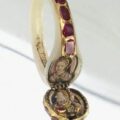
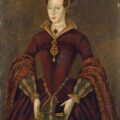
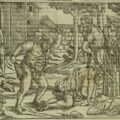
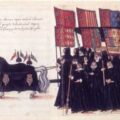
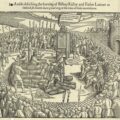
Oh god toothache is the worst pain of all and it does make sleep well nigh impossible, also it can spread up to the eye area and sometimes the nerve can cross over and make the opposite tooth ache as well, Elizabeth had a history of bad teeth it was known she loved meringues so much as she got older her teeth rotted and were quite black, she did it appears have a rather sweet tooth, before modern dentistry common folk went to the blacksmith and it must have been awful while he applied his tongs and just pulled out the rotten tooth, no pain relief just more than likely the patient got inebriated on plenty of ale, I guess the richer people in society used the same treatment but they would have drunk copious amounts of wine, for kings and queens their pain was no less than the ordinary folk, the Lady Mary herself suffered from toothache as well as, poor thing from migraines, imagine having the two together, in early times cloves were found to be quite effective in numbing the pesky tooth and you can still buy a small bottle today from the chemist, the oil is extracted from the plant and it has a funny herbal antiseptic smell, but it is very effective iv tried it myself, however ibrupropen is much much better, but yearly dental visits do of course keep toothache at bay, I know this is an old post but iv just seen it, I did not realise the Elizabeth Files was still going, Elizabeth was in a right state and she must have been very cranky as well, the courtier who offered to have his tooth pulled was incredibly brave but it was an old one and probably loose anyway, I just hope the queen did not suffer too much when she faced the same ordeal, people do not like going to the dentist today but we have the advantage of superior equipment and pain relief, some dentists even have am anaethestic for those of a nervous disorder, imagine the terror they faced before modern dentistry became a profession, no wonder the old queen was petrified.